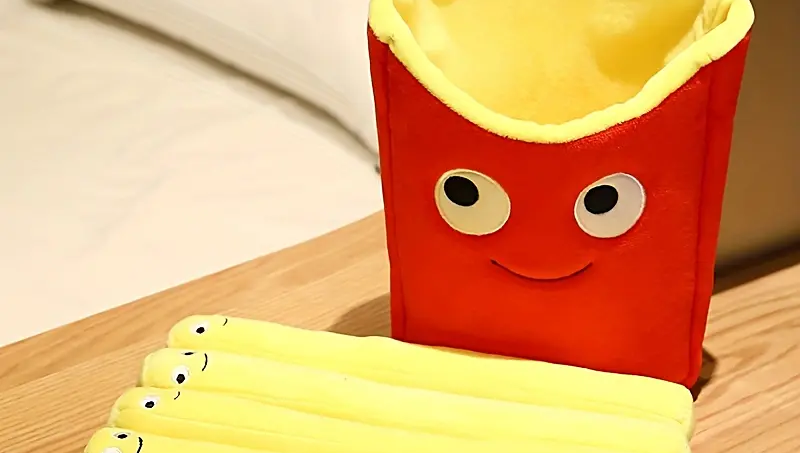Interesting emotional support fries
Recently I discovered a new item called emotional support fries. I have some knowledge about emotional support and some emotional support objects, such as emotional support animals. But with emotional support fries, can food also be used as emotional support?
With doubts, I looked up some relevant materials, and found out that emotional support fries are a kind of plush toy. Let’s take a look at what emotional support fries are.
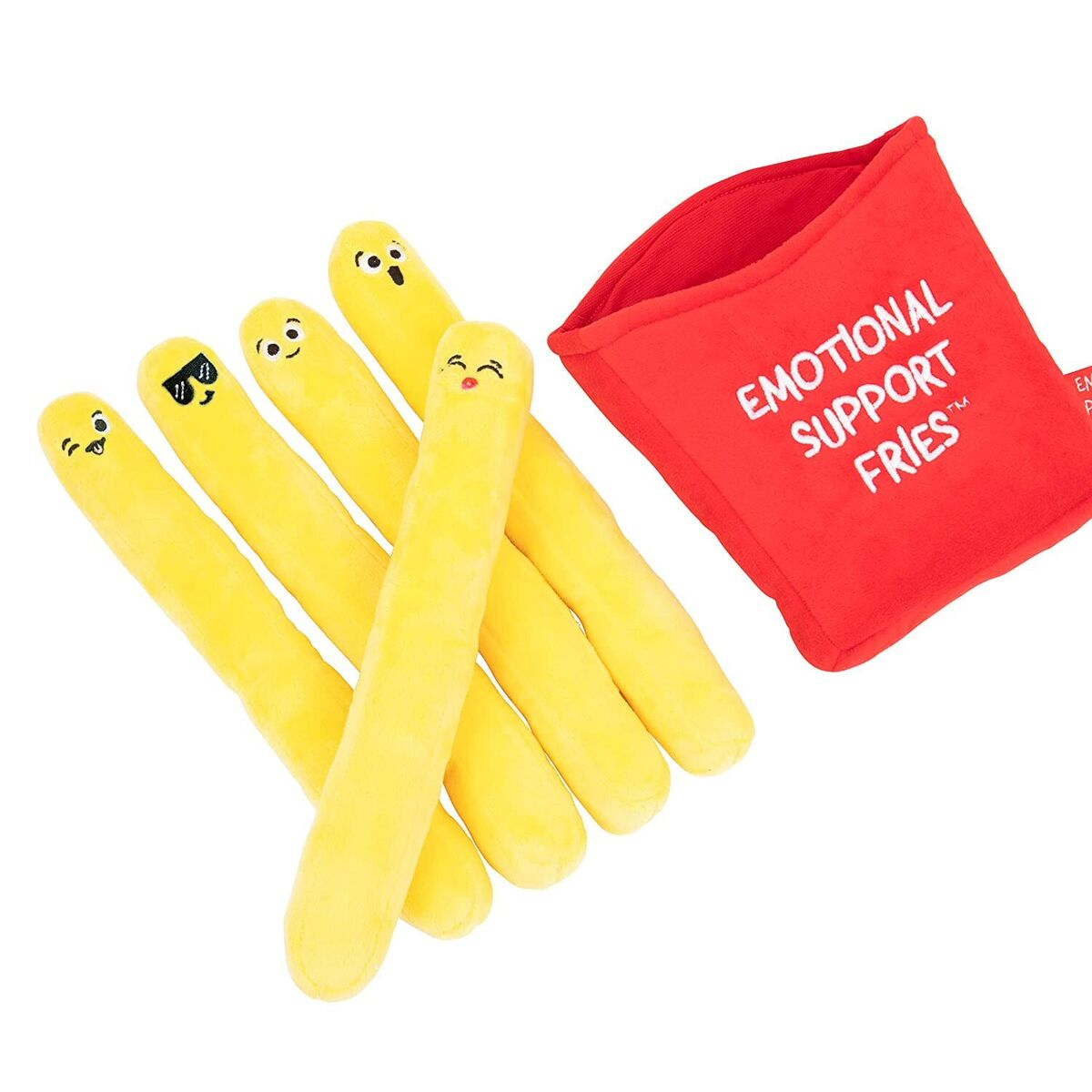
What are emotional support fries?
Emotional support fries are actually a kind of plush toy that can play an emotional support role. Its shape is very similar to French fries. There are yellow strips of plush items similar to French fries in the red shell, which can be directly placed on the fries. Take out the fries and place them one by one.
Most of what I know about before is emotional support animals. I know that some people use their pet cats and dogs as their emotional support animals. After obtaining a certificate for them, they can take them on planes, high-speed rails, and subways. Wait for a place where they can provide you with psychological support.
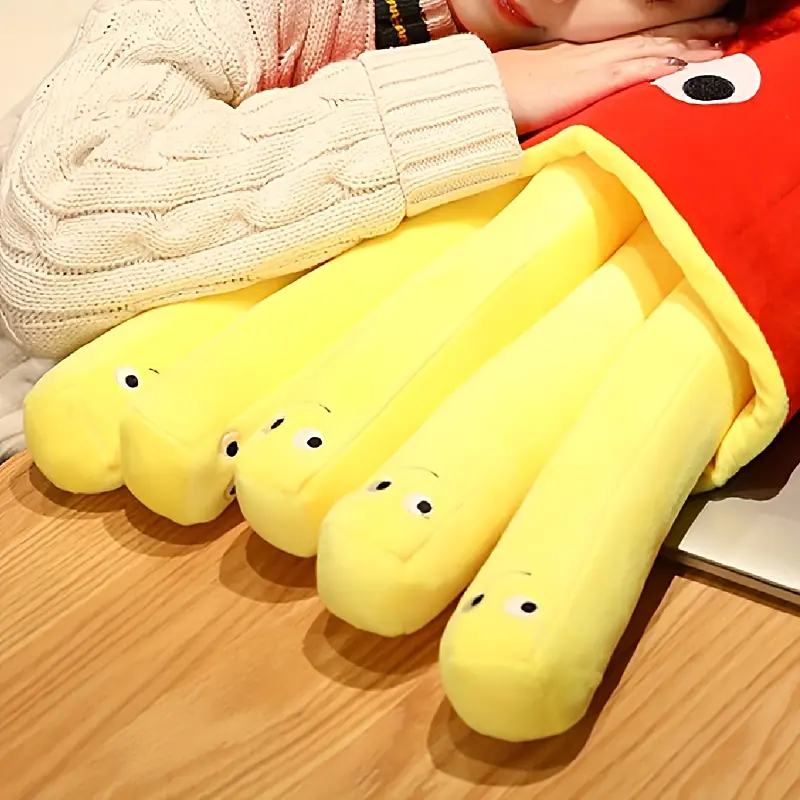
I have also written an article before about emotional support water glasses. Some people decorate their own water glasses to release their stress, thus playing the role of emotional support. As for emotional support fries, as a plush toy, can it also provide psychological and emotional support to people? How to understand the emotional support of fries?
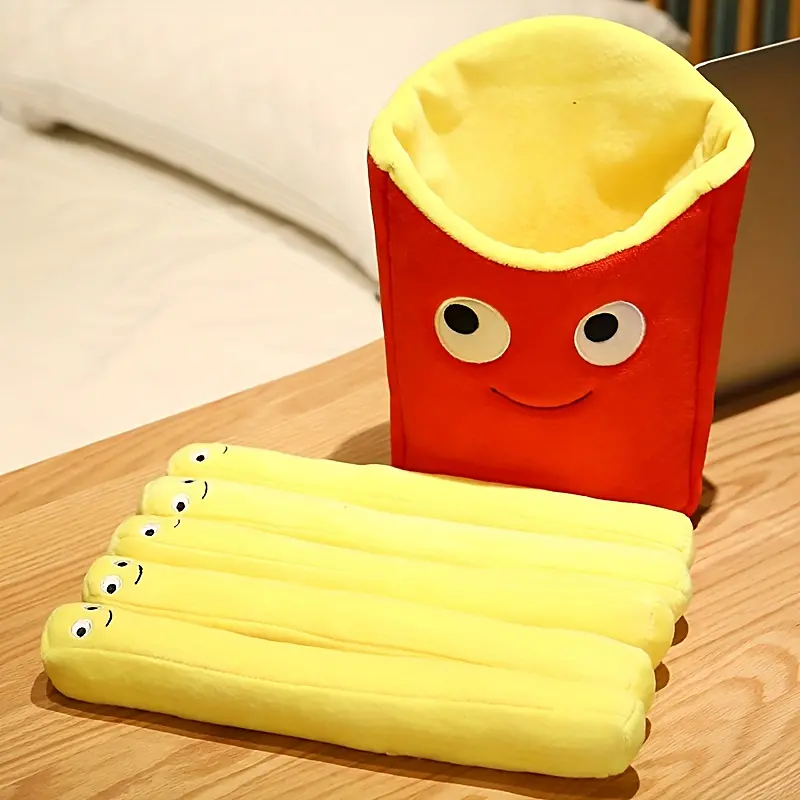
Sources of emotional support
Emotional support, by definition, actually means showing concern and empathy for another person. But with the development of society, more and more people can obtain emotional support from different channels. Examples include the previous emotional support water bottles and emotional support animals. So, we know that emotional support can be both verbal and non-verbal.

In this case, it is not difficult to understand why some people can get emotional support from emotional support fries. This situation is similar to the fact that babies aged between zero and six years old can easily develop fetishes, as shown in the following. For example, the baby must hold a stuffed toy to fall asleep, and hold a small blanket to stop crying. Why is this?
Baby’s “emotional support fries”
Fetishism is one of the common behaviors of infants and young children. This behavior is not good or bad and is determined by the child’s innate nature.

When a baby is born, facing a strange environment, it feels like he has experienced an unknown adventure, so he will show uneasiness, fear, and often cry. Infants and young children at this time lack emotional persistence. Once the mother is not around, the short separation will cause separation anxiety in the child. In order to relieve these uneasy emotions, they often look for substitutes to give themselves emotional support, so their “emotional support fries” were born.

Why don’t children let go of their small toys?
Missing sense of security
From birth, children will be separated from their parents, such as when they go to kindergarten and their parents go to work. With less time spent together and insufficient emotional response, children will focus on objects, find their favorite objects, and use them as their “emotional support fries” to stick together all the time.

Need for skin-to-skin contact
Children’s dependence on something comes from habit, and the skin begins to gradually adapt and relax to it. After adapting, it has to be separated, causing them to be uncertain about things.
Reverse psychology
Children will particularly like items that feel good to the touch. They will collect them and put them next to them, and get along with them like “good friends”. However, in the eyes of their parents, their behavior is weird, and forcibly separating their beloved items will only aggravate their rebellious psychology, making them even more inseparable from the items.

The so-called fetish is actually not about “things”, but “emotions”.
How long does it take for children to have “emotional support fries”?
Observation and research on the mother-infant relationship have found that the period when human infants are prone to form a “fetish complex” is between 0 and 5 years old. It can be seen that the fetish complex is a symbolic behavior of children transitioning to independence. It is not until they face an unfamiliar environment, come into contact with new things, and pass the sensitive period that they will gradually weaken their overreliance on items, and there will be no need for “emotional support fries”.

Adults looking for emotional support fries are actually the same as children who lack security and need emotional support when they are young. Objects can also provide people with emotional support. However, if your psychological anxiety has seriously affected your life, simply There is no relief with emotional support. At this time, you still need the help of a psychologist, family and friends. If you are really facing these difficulties, please speak out boldly and let everyone become your “emotional support fries”.

How to be someone’s “emotional support fries”?
Accept abnormal behavior
If your friend is often depressed, cries inexplicably, and feels insecure, please don’t give him too many reasons. Don’t just tell him impatiently that his current behavior is wrong. Please understand him from his perspective and comfort him.
Take the initiative to hug
No matter what he does or says, whether he behaves well or poorly today, take the initiative to hug him, because love is unconditional. A hug gives him a hint: someone will always be by his side!

Regardless of the results
Sometimes just being heard can make people feel supported. Don’t tell the other person how they should feel. Don’t contradict their way of thinking or belittle the seriousness of their problem. The effectiveness of emotional support is not of primary importance to those who seek it and those who give it.
Because the goal of emotional support should be to make the other person feel heard, valued, and cared about. Even if difficult situations continue, emotional support can help, for example, by preventing the person’s distress from escalating.
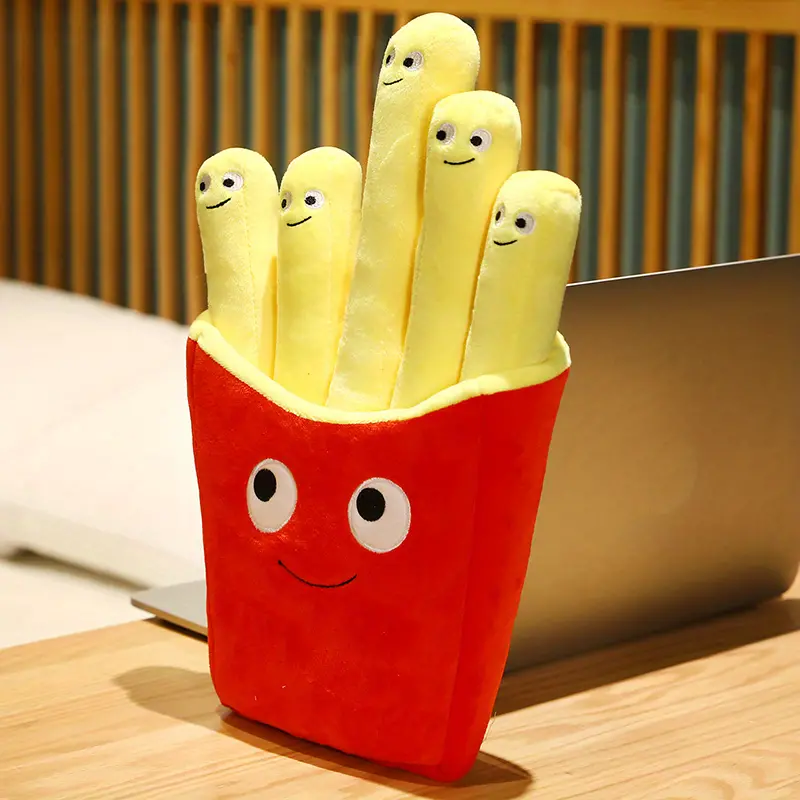
If you see this, thank you very much for your willingness to be someone else’s “emotional support fries”!
